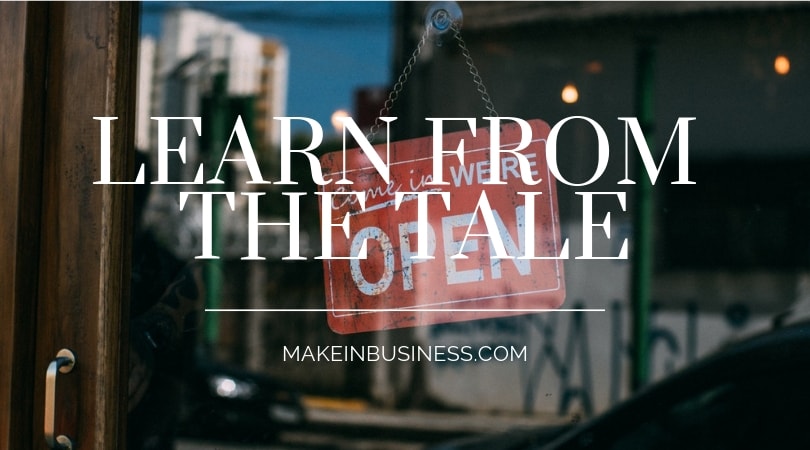Running a Small Business? Key Lessons Learned from Boosting Their Growth

Nothing beats the feeling of owning a small business with your name on it. More satisfying is knowing your small business is thriving successfully, with increased sales, and improved customer experiences. It takes time to achieve goals and objectives intended for your business, but once attained you are certain the small business will take flight. It will grow to insurmountable levels.
However, running a business and making it achieve great success for you is not always the ultimate goal. As a small business investor, you need to invest time and money to spur the growth of the business. To do this successfully, you must never be afraid of the investing process.
Most business owners are not just afraid, but also intimidated of investing. And too many times, they grow cold feet of the process and never realize true potential of growing the said business. It’s essential to learn the investment process. They are key lessons involved to help you easily make quick and better investment decisions in the future, for your business.
Financing and purchasing decisions
Picture this: John is a small business owner looking to purchase a “future home” for his business. He has been leasing his commercial retail space for the last three decades. While he understands the benefits of purchasing a “forever home” for his business compared to leasing. Yet, he is afraid of the process to make any sound decisions.
But once he approached a real estate broker and relevant details explained to him, the process became easier and smoother. He realized how much he stands to save on a monthly basis. He couldn’t wait to kick start the process of buying a “home” for his business.
Too many small business investors are faced with similar situations. They’re unable to make investment decisions perhaps are even too afraid to take necessary steps to go from leasing commercial retail space to purchasing “forever” space for their business.
This is where a real estate broker comes in. To help small businesses make informed decisions on how to save money by providing a step-by-step process evaluation. To make them understand what they stand to gain in the long-term.
This evaluation process begins with the real estate broker making recommendations about how a small business like yours can leverage on a good situation such as moving your business to a “forever home”. To make such recommendations a broker employs the use of financing and purchasing decisions to help a small business investor understand the many opportunities they stand to gain in the future.
In john’s case, he probably thought of taking a commercial loan to purchase a home for his business. But taking this road is not advisable and hardly does it yield results since it’s not guaranteed your business will meet online loan standards as credit score matters (especially if the business is not making profits to help determine its eligibility for the said loan). What John doesn’t realize is he has other better and encouraging options.
Valuable lessons learnt from helping a small business invest

John’s story is no different from other small business investors looking for a permanent home for their commercial business. Many small business owners are too afraid to make investment decisions, yet this decision will help steer the growth of their business in future. To make sound and informed commercial real estate investment decisions, there are key lessons to be learned …
1. There’s always a way, so find it
To make good and informed investment decisions, you have to learn never to give up. There’s no need to beat around the bush or keep wondering what you need to do. Find a way on how to make your decisions resourceful and creative.
Many times, small business owners give up before having even started their investing journey, and this becomes a huge problem which instills fear and are then encouraged to walk away from the idea of owning a commercial retail space for their business.
Intimidation delays their decision-making process therefore making it difficult to pursue their goals and objectives. Try and fail. Make sure to try again and again. Keep trying and failing, but never give up on achieving your desired results for your small business
2. Do the math
John did not see the bigger picture so he became afraid of taking a step to real estate investing. He felt the process was too hard and too complicated for him. Yet he was losing so much money leasing a commercial retail space instead of considering owning their space.
The amount of money John is paying to lease the space for his business would have been used to pay a commercial loan to build a permanent space with relatively identical square footage as the previous space he owned. So do the math and analyze how much you losing in terms of revenue and income when leasing space instead of owning it as a “home” for your business.
3. Owning a commercial space is not the end
Owning a “forever home” for a business is perhaps the ultimate goal for most small business owners like John. But that is not the end. Perhaps the most satisfying achievement would have been to lease out their commercial space and payoff any debts from the income.
Owning a commercial retail space frees up your resources and allows you to invest in other better things in future. Don’t be afraid to own a home for your business but also think of other ways to make this space resourceful for you in future.
Conclusion

Once you realize the power of making informed real estate investment decisions, as a small business owner, you stand to achieve greater results in future for you and your business.
Also, build positive relationships at all times with experts in the real estate world (think real estate brokers) to help make investment decisions a reality. They are much informed and experienced than you are and perhaps more willing to help make the process work. And help you achieve success later in life.
Don’t give up too easily just because you find investing intimidating. Remember to analyze your options at hand by doing the math and never assuming instead.
Also, keep in mind that owning a commercial space is just the beginning of good things to come in future. A good small business investor understands the importance of saving time and money, so allow yourself to believe success is achievable through taking the right steps and making sound real estate decisions that will steer growth and success of the business in the days to come.
FAQS
There are many key lessons that small business owners should be aware of in order to boost business growth. One is investing in digital marketing, such as social media and website optimization, in order to reach larger audiences and create higher brand visibility. Other key lessons include developing a clear business strategy and maintaining consistent cash flow by monitoring income and expenses. Additionally, building relationships with partners, customers, and suppliers and taking advantage of available resources from local small business organizations can be integral in the success of the business.
Crafting a strong business strategy involves making informed decisions about the target market and goals of the business, as well as identifying strategies for capitalizing on the organization’s strengths. Additionally, market research should be conducted to gain a better understanding of the competitors, target customers, and industry trends. The resulting strategy should include a plan for how to differentiate the company through unique service or product offering as well as outlining a timeline for achieving these goals.
Digital marketing is essential for any small business in today’s digital age, and website optimization is equally important for success. To maximize the potential of digital marketing efforts, the website should be designed with an attractive, modern layout and with the user experience in mind. Additionally, important SEO factors like mobile friendliness and targeted keyword use should be taken into account. Social media networks are also useful for creating content and reaching potential customers, and their ads can be targeted to reach specific audiences.
Cash flow monitoring is a key element in the success of any small business, as it can ensure that funds are available when needed. An effective cash flow management strategy involves forecasting future costs, tracking sales and expenses, monitoring payments, and negotiating terms with creditors. Staying on top of cash flow also involves having emergency funds available in case of unexpected costs.
One of the best ways to build strong relationships with partners, customers, and suppliers is by providing excellent customer service and delivering on promises. For customers, emphasizing the value of the product or service and creating a rewards program can help build loyalty. When working with partners, taking the time to build trust and addressing any issues openly is key. Building relationships with suppliers involves establishing payment terms and ensuring that time and quality expectations are met.
Small business organizations can provide helpful resources in the form of advice, funding, and other tools. These organizations typically provide guidance on obtaining necessary permits and licenses, developing a business plan, and other tasks. Many of these organizations also provide funding opportunities, such as grants or loans, that can help entrepreneurs launch or expand their business. Additionally, they may offer other resources such as networking events or workshops.
Conducting market research is essential in understanding the competition and target customers. This can include analyzing competitors’ prices and services, paying attention to customer reviews, and monitoring their marketing strategies. Additionally, surveying target customers and conducting focus groups can provide valuable insights on their needs and preferences. Research can also help identify opportunities that the business may have missed and help create products or services that will effectively meet the needs of customers.
Differentiating a business through something like a unique product or service can be very valuable in gaining an edge over competitors. It can help customers identify the business more easily and provide them with an experience that is not offered elsewhere. Additionally, a unique offering can foster customer loyalty, as customers may be more likely to invest in something that can’t be matched by competitors. Having an offering that stands out from the competition can help gain exposure and attract more customers.
Timelines provide structure and direction for achieving business goals. To ensure that the timeline is effective and realistic, it’s important to consider the resources available and how long each task may take. Additionally, setting smaller goals that can be achieved more quickly can help propel the business towards larger goals. Finally, leaving room for the unexpected and making any necessary changes along the way can help ensure success.
Emergency funds are essential for small businesses, to be prepared for unexpected costs. To manage emergency funds, small business owners should factor in a cushion of funds for unexpected expenses. Additionally, separatin emergency funds from working capital can help prevent funds from being used for other purposes. Additionally, tax deductions and other cost cutting measures can help build up the emergency fund. Finally, creating a budget and tracking expenses can help ensure that the funds are used wisely and for the purpose for which they are intended.






